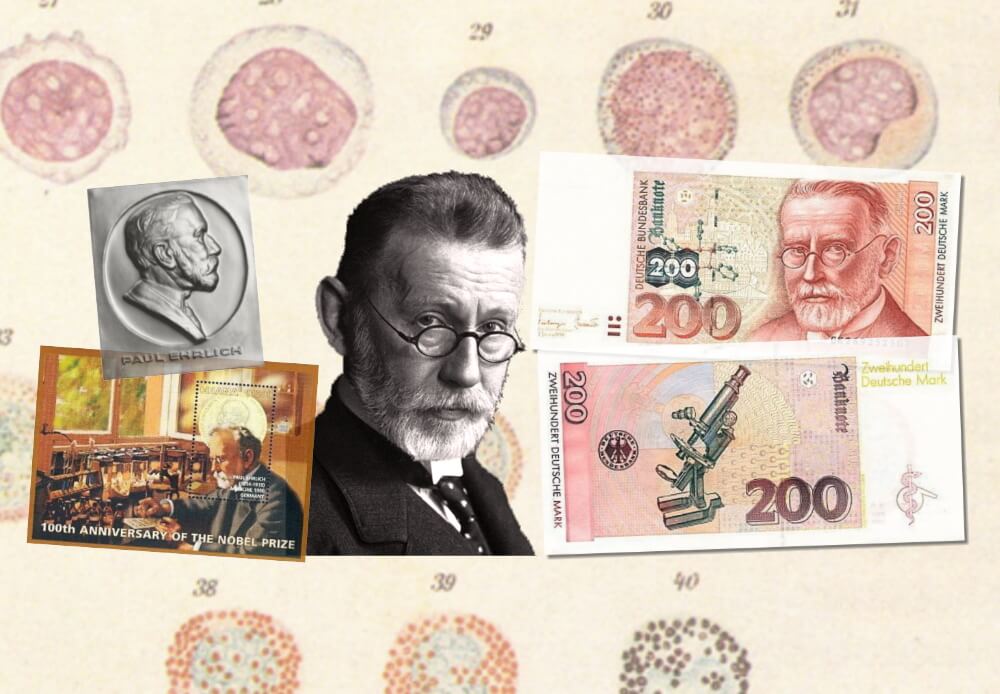Forging the Magic Bullet
On March 14, 1854, German physician, biochemist and bacteriologist Dr. Paul Ehrlich was born.
German universities teemed with brilliant doctor-scientist-researchers during Ehrlich’s time. He began as an assistant to bacteriologist Dr. Robert Koch, one of the founders of microbiology, who was only 10 years older and served as an inspiration to the younger man.
Ehrlich learned the most modern techniques for preparing microscope slides, tissue staining, and obtaining pure cultures to isolate disease-causing organisms. He improved every technique he learned. He investigated the nature of chemical bonding to find substances like chemical dyes that could stimulate the production of specific antibodies to a disease. Ehrlich figured that if he could produce a compound that targeted a specific disease-causing organism, he could also produce a magic bullet as a toxin or drug that travelled with it to attack the disease-causing organism.
Apart from his successes in immunology, Erhlrich continued to investigate and improve selective dye staining of cells. He reached the point at which he could selectively stain to differentiate between types of white blood cells and also between different types of red blood cells. Ehrlich applied his knowledge of chemistry to successfully pioneer identifications of both healthy and cancerous cells, using his insight and achievement to launch cancer research and chemotherapies.

Dr. Ehrlich was internationally celebrated within his lifetime. A Nobel laureate, he received many other honours, medical/science prizes, and was a member at one level or another in over 80 academies around the world. Streets, schools, and pharmacies carry Dr. Ehrlich’s name, as have a German postage stamp and bank-note. Warner Brothers celebrated his achievements in the film Dr. Ehrlich’s Magic Bullet.
Each year, on this day, the Paul Ehrlich Foundation awards the yearly Paul Ehrlich and Ludwig Darmstaedter Prize to honour scientists who have made valuable contributions in Ehrlich’s fields – chemotherapy, hematology, clinical bacteriology, immunology, and cancer research. The Foundation further awards an annual prize to a young scientist for outstanding accomplishment in biomedical research.
B Bondar / Real World Content Advantage